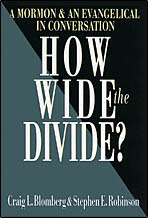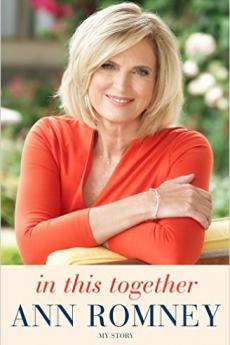 The author of this story at the American Thinker is Justin Hart. Justin sits on the Faith and Values Committee of the Mitt Romney campaign and is the founder of MyManMitt.com.
The author of this story at the American Thinker is Justin Hart. Justin sits on the Faith and Values Committee of the Mitt Romney campaign and is the founder of MyManMitt.com.Here's are a few selections from the story:
In the rush of news articles handicapping Massachusetts Governor Mitt Romney's presidential aspirations is an unnoticed but significant thaw in the troubled relations between Evangelicals and Mormons.
The Big Freeze
Of course, before the thaw, there was the freeze.
The two religious movements share similar roots in the early 19th century revival period. However, while the predecessors of the American evangelical movement enjoyed the fruits of their labors across New England, Mormons were being forced westward.
The motives behind the Mormon ouster were generally competitive (the Church of Jesus Christ of Latter-day Saints grew to 100,000 members in less than 15 years) but also economic (Mormon-dominated Nauvoo, Illinois had a population eclipsing Chicago's in 1844). While this first religious rift ended in physical separation the second rift ended in theological banishment from Christendom.
A Dialogue Begins
In 1996 a very unlikely pair of scholars attempted an unprecedented feat: a book on Evangelical and Mormon beliefs. The "unprecedented" and "unlikely" part is this: one scholar is Evangelical, the other Mormon.
In one corner: Craig Blomberg (Ph.D., Aberdeen), professor of New Testament at Denver Seminary. In the other corner: Stephen Robinson (Ph.D., Duke), professor of ancient scripture at Brigham Young. Under the traditional rules of engagement, the gloves would come off and the rhetoric would fly long and hard.
Astoundingly, and to the chagrin of many a rhetorical boxer, the book was an attempt at "listening" to the other side, and explaining one's own beliefs. In their book, How Wide the Divide? A Mormon and an Evangelical in Conversation, Blomberg and Robinson tried to dispel common caricatures about each movement that have grown increasingly un-Christian over the past two decades. Most importantly, the book became the first major dialogue between a recognized Evangelical scholar and his Mormon counterpart.
Losing the Battle?
A year later in 1997, two evangelical scholars published an article entitled: "Mormon Scholarship, Apologetics, and Evangelical Neglect: Losing the Battle and Not Knowing It?" In it they examined anti-Mormon literature and Mormon apologetics. What did they find? Well, in their own words:
Mormonism, has, in recent years, produced a substantial body of literature defending their beliefs... In this battle the Mormons are fighting valiantly. And the evangelicals? It appears that we may be losing the battle and not knowing it.
The New Mormon Challenge
Fast forward to 2002, Messrs. Owens, Mosser together with noted conservative author Francis J. Beckwith publish a lengthy volume, The New Mormon Challenge to address the growing Mormon movement.
It was within the first paragraphs of the forward that Richard J. Mouw first made the admission of being "ashamed of our record in relating to the Mormon community." As Mormon apologist Dan Peterson noted, the tone is "light years" from the usual rhetoric.
Of course, beyond the courtesy and rapport of the authors are serious disagreements with Mormon theology. "Mormonism's challenges are real and can be dismissed only at a cost evangelicals are unwilling to pay" says Carl Mosser.
Of course this is at the academic level. Is there discomfort among Evangelicals about Mormons? Yes. Is the breach in the wall large enough where a dialogue can begin in the grassroots? Perhaps. Is it insurmountable? Time will tell. After all, as someone noted, if common religious bonds were the only yardstick in the voting booth, conservative evangelicals would have chosen Jimmy Carter over Ronald Reagan.
Let's not put Mitt in the middle of a theological debate--even a thawing one. That's ridiculous. let's put him in the White House. He's a plus for both Mormon and Evangelical alike.






No comments:
Post a Comment